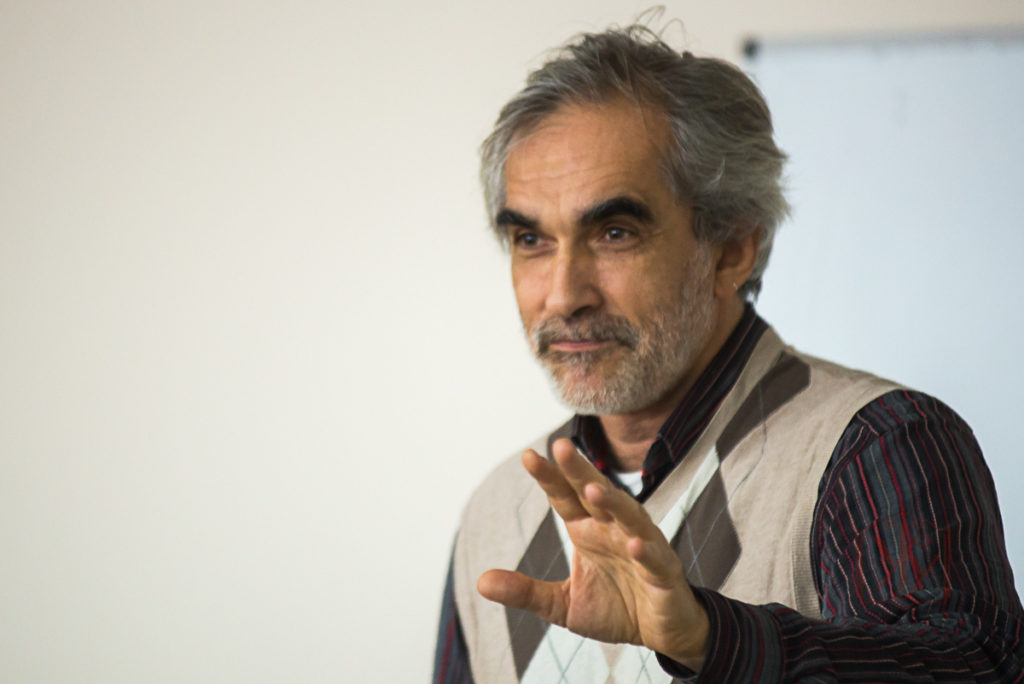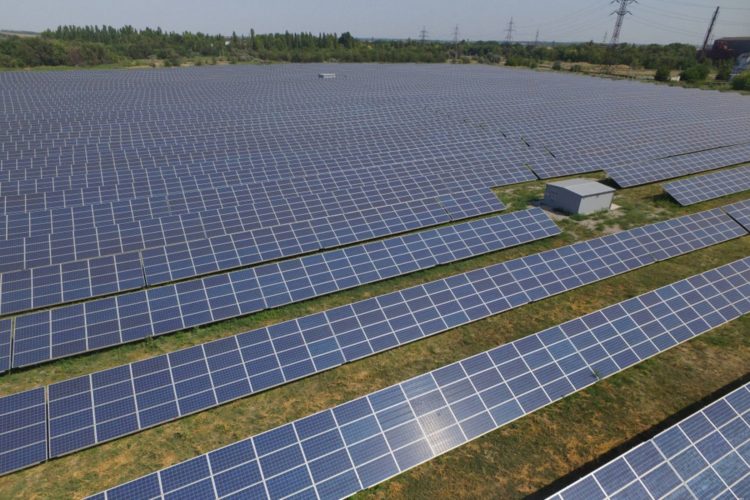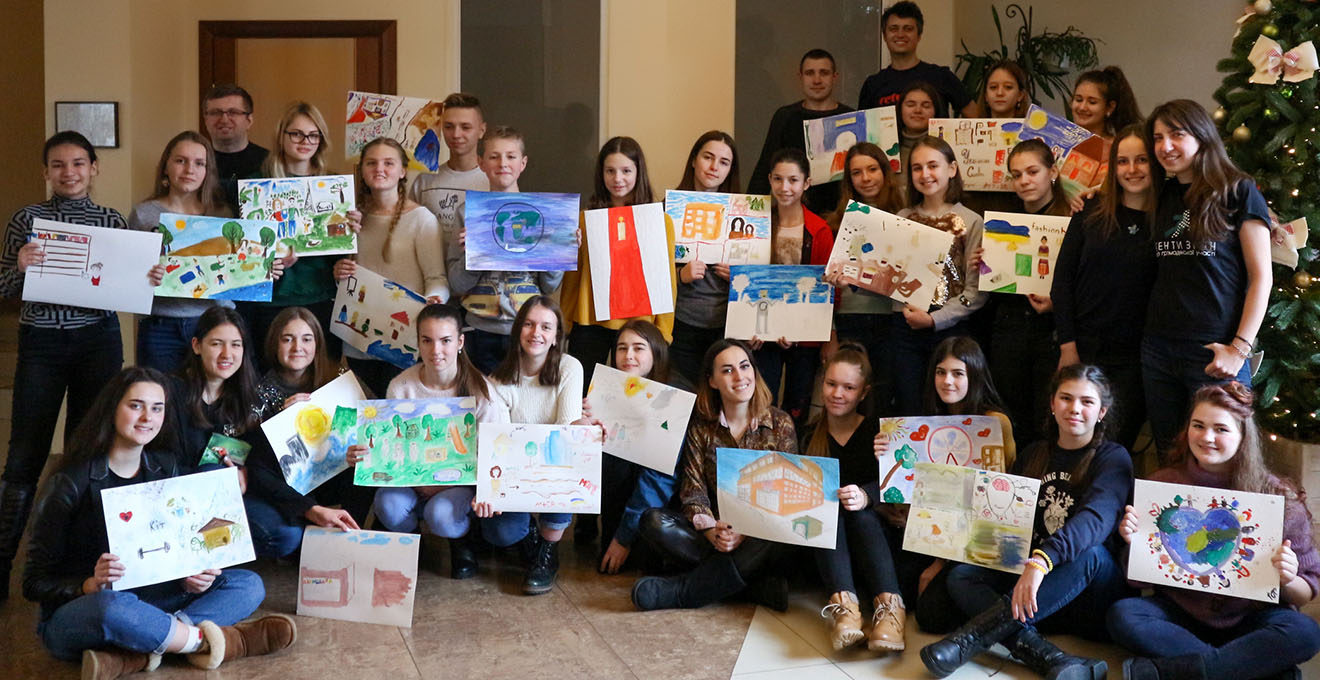Euromaidan Press talked to Dmytro Sukhanov, producer of the wildly successful feature My Thoughts Are Silent and head of the Film Industry Association of Ukraine about how Ukrainian cinema survived the pandemic, patriotic films and propaganda, cinematic nation-building, cash rebates for international filmmakers, and the reasons for this most unexpected cultural flourishing.
One of the recent developments of the industry was Ukraine's participation in the European Film Market during the 71 Berlin International Film Festival. There, Ukraine organized market screenings for four films. The Film Industry Association of Ukraine supports the state in organizing the Ukrainian stand for several years in a row and makes it open for any representatives of the industry. Participating in the European market gives filmmakers an opportunity to show their works before the world international expert community, giving their creations a truly global platform.
In another success for Ukraine's cinema, the Ukrainian film Stop-Zemlia by Kateryna Hornostai was selected for the competition program of the Berlin Festival, which will take place later this year.

Dmytro Sukhanov produced the fiction comedy MyThoughts Are Silent, directed by Antonio Lukich. It tells the story of a sound engineer who was tasked with recording voices of rare animals and birds. His mother who works as a taxi driver follows him on his trip to Transcarpathia and creates different kinds of problems for him.
The film immediately became a success story. It was screened at roughly 70 festivals, and the Calvert Journal added it to the list of 10 most anticipated New East films. In Ukraine, in the first two weeks of screenings alone, the film collected more than UAH 5 mn (nearly $180,000) in Ukrainian cinemas, which is unusually high for a film in Ukrainian reality. However, commercial cinemas did not believe in the film at first, and therefore it was not screened in all Ukrainian cities. But after widespread public demand, cinemas finally added the film to their programs, and in some places, screening times were prolonged.
Sukhanov reveals the details of how this outcome became possible. He believes that the film's success can be attributed to three components that can rarely be observed in one work:
- a captivating and unusual style with a fairly deep statement, which attracted European experts;
- this statement was delivered through a light comedy format, which attracted a large Ukrainian audience;
- unconventional Ukrainian narratives were woven in, which multiplied the success.
You can watch My Thoughts are Silent on Takflix, an online cinema for Ukrainian films, for just UAH 75 ($2.70).
Takflix: a platform where you can finally watch Ukrainian films online
How talented Ukrainian authors manage to break through
Ukraine’s recent film scene includes many other internationally successful documentaries.
Last year, The Earth Is Blue as an Orange by Iryna Tsilyk received awards at the US Sundance Film Festival for best directing of an international documentary, among other international prizes. The film tells the story of a family living on the Ukrainian frontline and filming its own project.
At the end of last year, This Rain Will Never Stop by Alina Gorlova received an award at the world’s largest documentary film festival, The International Documentary Film Festival Amsterdam, as the best debut. It tells the story of a Syrian who flees the Syrian war to Ukrainian Donbas, but soon the war starts there as well.
There are many more similar stories.
- Read also: The Berlinale Grand Prix film from Ukraine tells a different story of the Donbas
- “Pushing Hollywood aside” – renaissance in Ukrainian cinema
Sukhanov considers Ukrainian film representation at A-class festivals an indicator of the Ukrainian filmmakers’ levels.
“Our gene pool has always given birth to many talents in various fields.”
That’s why even minor support for auteur films, aka art cinematography, already bears fruitful results, the expert says.
“First of all, this achievement is related to the fact that after Euromaidan, Ukraine managed to regulate legislation for the support of auteur films and to create a more or less transparent procedure for funding. It is consistent with European concepts of film support. These instruments provided an opportunity for young authors to receive access to funding of their debuts and access to international collaboration. The international film community has started taking Ukraine seriously. Of course, there are also minuses. The system is still raw and too politicized.”
What is a patriotic cultural product and should the state deal with it?
The state’s support for the film industry is also crucial in terms of countering Russia’s hybrid war, which uses information, culture, and propaganda as its instruments. During the long years leading up to the Euromaidan revolution in 2014, Russian films and TV series dominated over Ukrainian ones in the country. Only after the occupation of Crimea and the beginning of Russia’s war did the Russian share start to decrease.
“The state has to invest money in developing culture. Because a national identity, as well as an understanding of what it means to be Ukrainian for every citizen, can be most easily formed by cultural products where cinema is one of the most powerful instruments,” Sukhanov tells.
After the revolution, Ukraine put effort into popularizing its native narratives using cultural instruments. Apart from supporting filmmaking in general, it introduced a program of support for films of patriotic leaning.
Sukhanov is confident that the state has the right to pursue propaganda. However, it should be implemented in an appropriate way.
“People should watch not rudimental narratives about Kozaks, lard, and dumplings, but about our contemporary world. Where they can sympathize with characters, experience sublime emotions in relation to a story like it happens in their real lives. Such products are missing now, and this path has to be supported. It leads to the formation of a common understanding of Ukrainian identity. And why ‘friendly tanks,’ when they come, are not entirely friendly. If Ukraine did not invest in it, we would have people who don’t understand whether they are Ukrainians or not, is it still the Soviet Union or not, why this is bad and this is not. In such a way, the state loses its security.”
Dmytro Sukhanov believes that one of the best examples of patriotic films is the 2017 feature Cyborgs by Akhtem Seitablaiev. It tells the story of the scant yet dauntless soldiers of the Ukrainian army and volunteer battalions who managed to hold their position in the Donetsk airport for a whopping 242 days back in 2014, despite being heavily outmatched by Russian-separatist forces. The airport finally crumbled, its concrete corroded by bullets, but rumor has it that the valor of the Ukrainians was so impressive that they were nicknamed “cyborgs” by their enemies.
Also on Sukhanov’s shortlist is the fiction Bad Roads by Natalya Vorozhbit. It already won an award at the Venice Film Festival, the world’s oldest cinematic event. The film includes unrelated stories of war-torn relationships between people.
Sukhanov thinks his film, My Thoughts Are Silent, is patriotic, too, even though it is totally apolitical.
“If we are talking about patriotism, then forming cultural meanings is a very patriotic process. If a film contains cultural narratives and unites people without direct propaganda messages or notes, is it patriotic or not?”
Why culture loses when the state subsidizes TV instead of cinema
Last year, the Ukrainian state also allocated money for the patriotic genre. However, only TV series could take part in the competition. This step is a setback to Ukraine's cinematic renaissance, the expert says. Ukraine’s TV series production falls short of the standards required for the global market: in Ukraine, they serve rather as low-quality “fast food” called to increase ratings of oligarch-owned TV channels.
“Often focusing on ratings, TV exploits the bad taste of viewers, it does not develop cultural senses and narratives. Therefore, in fact, money is not added to TV but is redistributed, being flushed out of a possible cultural auteur product into a commercial television product. It does not enhance the cultural values of this product.”
As a result, Ukrainian TV channels use state money to produce more of the same old mediocre sitcoms -- a far cry from the tectonic progress for the entire cinematic field borne out of financial injections into the “high culture” film scene.
Meanwhile, the world market of series is migrating towards Video on Demand platforms. However, according to the expert, so far, authors able to produce internationally successful commercial TV series have not yet materialized, and auteur films are stagnating because money was drained out of them.
“I think that to see improvement all the market players have to sit at a round table to discuss a common strategy. So far everyone is writing their own strategy. But there is no common dialog between the players.”
Cash rebates benefit both international filmmakers and the Ukrainian economy
While funding TV series was a setback for progress on the Ukrainian film scene, last year’s introduction of a cash rebates system is expected to be a positive step. The Ukrainian state will now compensate international filmmakers shooting in Ukraine 25% of the budgets of their films.
From the first view, such refunds are crazy, but they are part of a long-term strategy, Sukhanov says. International filmmakers contribute not only to the industry but to the country’s economy overall. They hire local employees, pay their salaries, and generally bring money into the economy. So apart from bringing more oomph into Ukraine’s film industry, this step could be a major source of investment.
Apart from this refund, Ukraine offers international filmmakers a wide range of locations, additional opportunities like closing off streets which is a far more complicated task in the EU, and skilled professionals.
Last year, one international project eligible for rebates was filmed in Ukraine. However, none were received since the procedure turned out to be too regulated. Sukhanov estimates that this problem should be fixed in about half a year, after which Ukraine is predicted to reap the results of this bold measure.
What the state should do to make the film industry more productive
Apart from the cash rebates, the state made a positive impact on the industry by not cutting its budget due to Covid-19, unlike many other countries, Sukhanov says. Cinema started to be discussed more in governmental and political circles, which helped it survive during the crisis.
“When everything was closed because of Covid-19, cinema was allowed to maintain production. Filmmaking was marked not as a mass event, but as a particular process, and if the protective measures were followed, shooting was allowed. This was important; otherwise, the entire industry could have died off altogether.”
Ukraine has gone a long way to support its cinema, but Sukhanov believes there is room for growth.
State support for TV and cinema should go in different baskets: they serve very different purposes. As well, when Ukraine adopts the law on media, it would finally be eligible to receive European grants funding. Crucially, the state should be open to discussions together with key players in the industry.
“This process where everyone stands only for themselves is depressing. It will lead us nowhere. If one side wins, it will be a temporary victory. Still, there will be a struggle for resources. We can spend these efforts and resources on something more useful,” Sukhanov concludes.
This publication is part of the Ukraine Explained series, which is aimed at telling the truth about Ukraine’s successes to the world. It is produced with the support of the National Democratic Institute in cooperation with the Ukrainian Crisis Media Center, Internews, StopFake, and Texty.org.ua. Content is produced independently of the NDI and may or may not reflect the position of the Institute. Learn more about the project here.





